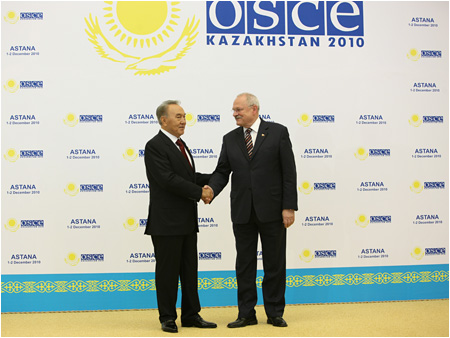
In his speech, Slovak President Ivan Gašparovič called upon the participants not to waste time and energy on discussing who contributed more and who less to undermining the basic attributes of the Helsinki Process - that is, solidarity and trust. In particular, he considered essential the approval of the Action Plan, “even though we originally wished for a more ambitious document.
I am glad that, under Slovakia’s presidency of the Joint Consultative Group of the Treaty on Conventional Armed Forces in Europe, we managed to get out of the ‘dead end’ where we have been stuck for years on issues concerning armament control and disarmament and that agreement has been reached on the decision that will lead to the commencement of substantive negotiations in 2011,” Mr. Gašparovič said.
He also expressed his commitment to equipping the OSCE with necessary instruments and a mandate for a more flexible prevention of conflicts and more effective engagement in their solution, and restore the OSCE’s position in the security architecture which it deserves. This also requires consent to the presence of OSCE missions directly in conflict-ridden regions.
“With a reference to increasingly stronger nationalist trends present in foreign policies of a growing number of governments, Slovakia agrees with the opinion of High Commissioner on National Minorities Knut Vollebaek that the misuse of minorities for expansion purposes undermines the stability and security.
We wish to see the OSCE primarily addressing those issues which have real impacts on our security today, not wasting its resources and energy on artificially politicised problems. It is also with respect to this objective that we have been, in the long run, calling for a stronger involvement of the OSCE in energy security which directly affects our national security. It is vital to all of us, regardless of whether we are a supplier, transit or target country,” the Slovak President stressed.